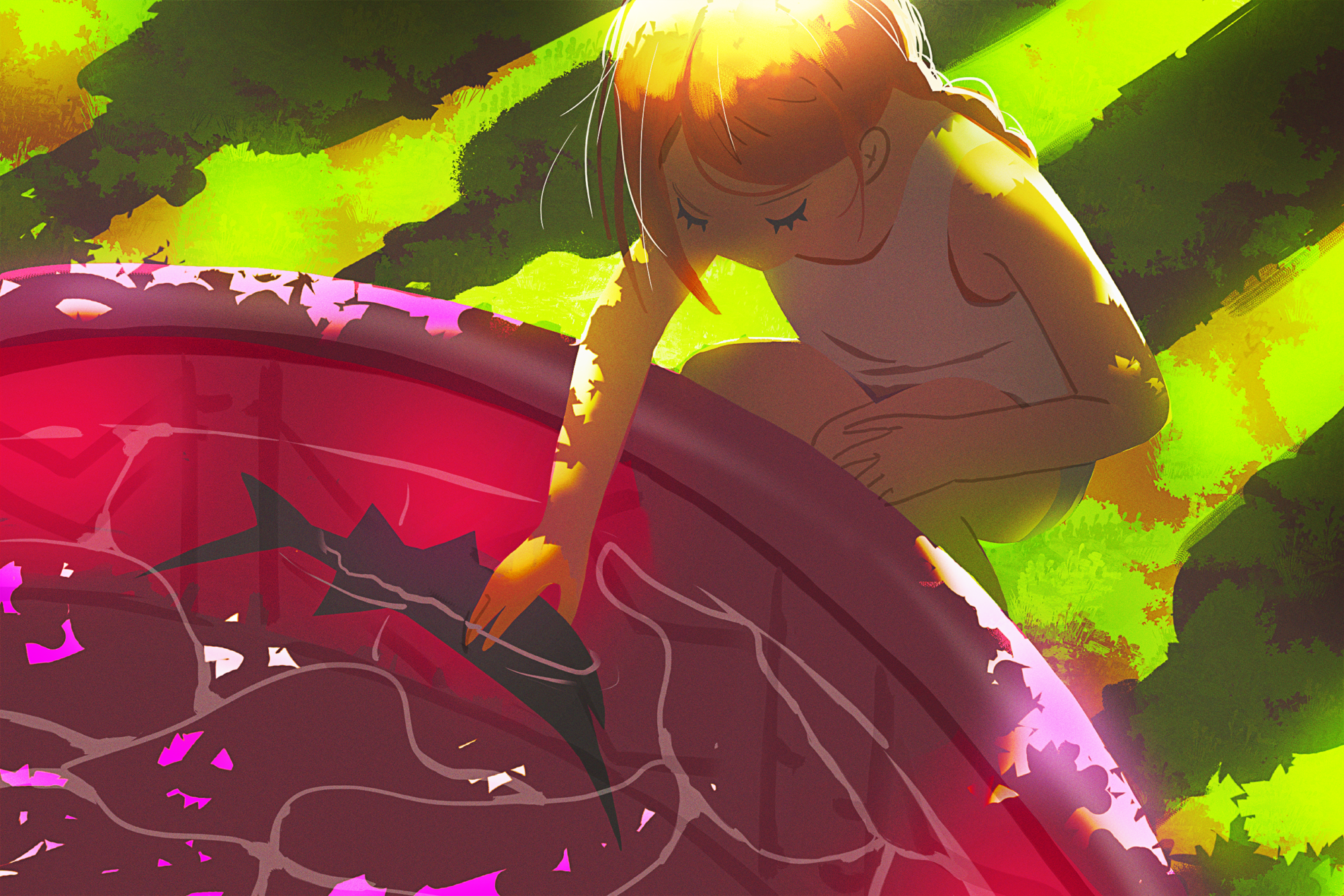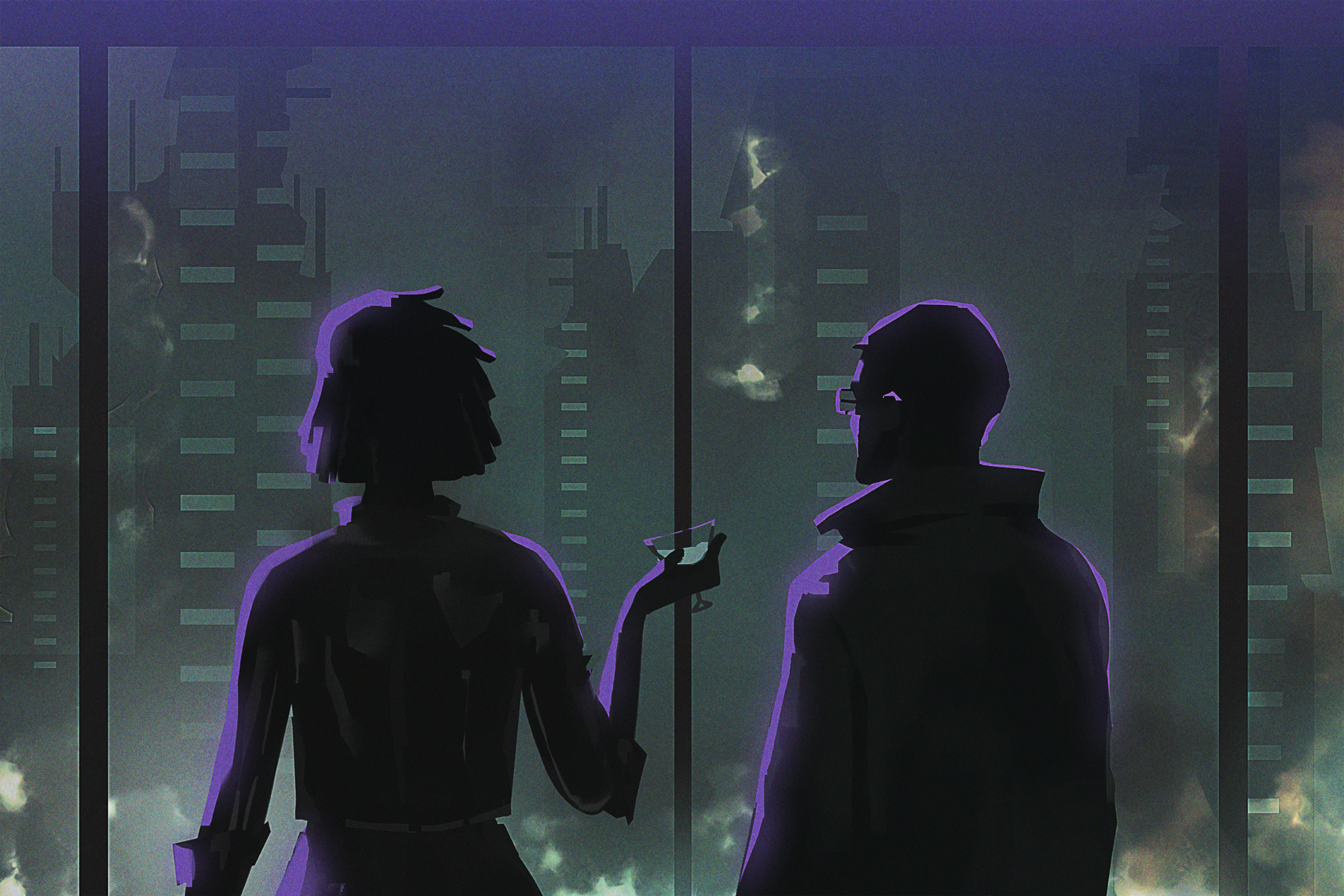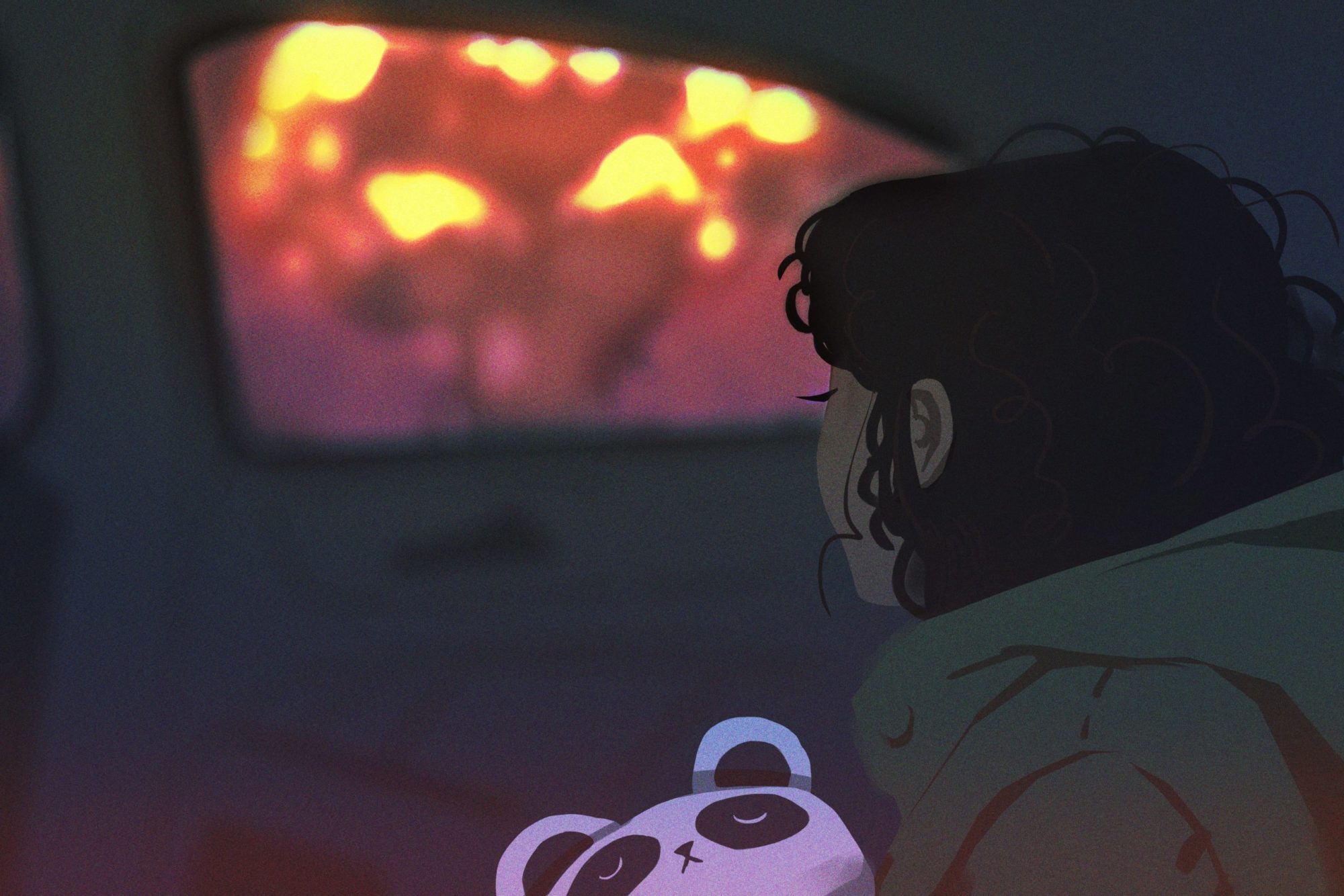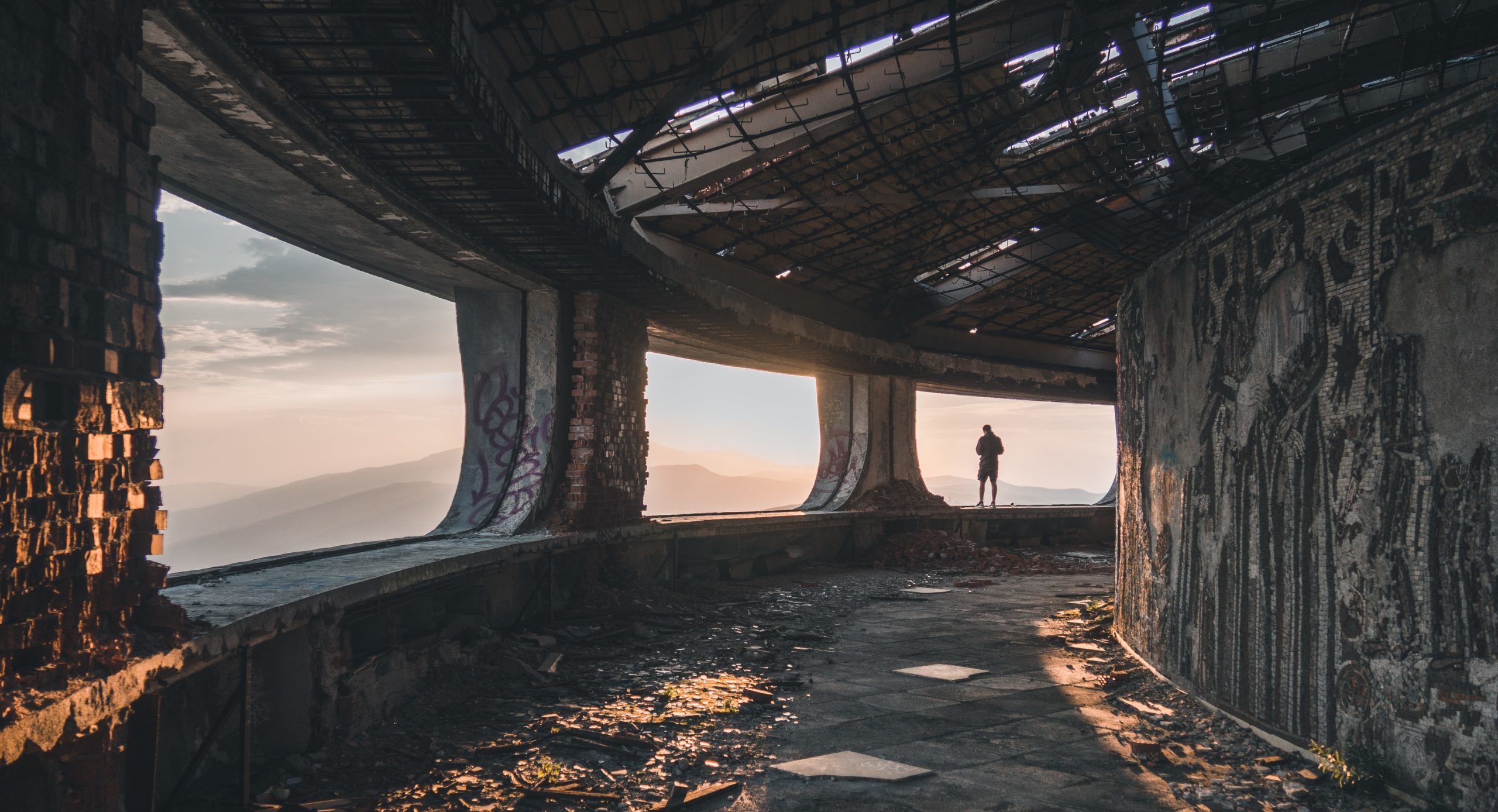In our first-ever short story contest, we invited writers to imagine an event, conflict, or situation that could make us care about — and fear — nuclear weapons again. “Paddlefish” is our winning entry.
Olivia saw six nuclear explosions in her life. One when she was seven. Three when she turned 24. One when she was 29 and the last when she was 33.
1.
Most people have a story about their first nuclear attack. They talk about it the way Olivia’s parents talked about 9/11. Older people remember the shock and the horror of seeing the first wartime nuclear explosion in nearly one hundred years.
Olivia remembers it as the day she saved the paddlefish.
It was moving day. She and her parents had been evicted from their house with the big yard and were moving into the smaller one where she would spend the remainder of her childhood, despite her parents’ promises that it would be temporary.
It happened as they drove the moving truck to their new place. Her dad unpacked the TV first and they sat on the floor where they transitioned between scrolling through headlines on their phones to watching the news on the flat screen. She remembers a white flash erupting from the corner of a grainy green screen, eclipsing the white lights of a city. The news kept showing the same five seconds of footage over and over. This was the first she had heard of a city named Riyadh. Decades later, whenever she read the name, she would be overcome with a compulsive visualization of a green screen turning white.
Olivia remembers that her dad noticed her reaction to the footage. “It’s a long ways away, babe,” he told her. “We’re okay.” It was an answer to a question Olivia had not yet thought to ask herself, but his answer didn’t satisfy her. Her mother told her to go outside to the back deck.
The news kept showing the same five seconds of footage over and over. This was the first she had heard of a city named Riyadh. Decades later, whenever she read the name, she would be overcome with a compulsive visualization of a green screen turning white.
As she emerged from the house into the thick Virginia humidity, she saw the bright pink kiddie pool her dad had set up the night before for her fish — the paddlefish. Three fish, all jet-black and about eight inches long. She had begged her father for them when they were small, just the size of minnows. She didn’t realize how big they could get. Paddlefish are not very pretty fish, but Olivia liked the way they swam. They had long paddle-shaped snouts that they used to graze the surface of the water as they glided with gaping mouths. Olivia always wondered if the only food they ate was what accidentally fell in.
They were swimming in narrower and narrower circles around the pool. Two had gone belly-up, exposing their pale undersides to the sun, while the last one kept flopping near the surface. She called out to her dad to say they were dying. Her dad stepped to the back screen door and looked at them pitifully. “I think they’re done, babe. Didn’t take well to the move,” he said and quickly returned inside to watch the news.
Olivia crouched over the kiddie pool and peered at the fish. She could see that one was gasping near the surface. Timidly, she reached into the cool water and wrapped her hand around one of the fish — the one that was still moving. Its black skin was smooth and slick and punctuated by bony spurs. It was stronger than it looked and it wriggled and writhed against her grip. Olivia slowly began to move it through the water, letting the water pass through its open mouth and gills. She could feel its faint breaths.
It started as a way to pass the time — a little experiment to distract herself from the frantic move, of their old, familiar home, of the friends she would no longer see, of her mom and dad arguing as the eviction deadline approached (“I don’t want her to see the Sheriff!” her mom had screamed), and — now — of the green city disappearing over and over again on TV. Olivia felt like nothing could be the same.
She was right, but would not know for sure until much later. She couldn’t know then how much her world and its possibilities were narrowing, even as her perception became more clearly attuned.
Olivia had begun to cry without realizing it. She looked down and felt the smooth fish come alive in her hands and swim away, its fin wimpling in the scattered sun.
2. 3. 4.
Olivia is a teacher at a middle school in Norfolk. She teaches environmental science and social studies (and for three semesters, poorly, art). For Olivia’s students, Riyadh never happened, just as for Olivia 9/11 never happened. It exists for them not as a moment but an inheritance. Their memories of nuclear war begin with Lahore — or for her later students, Seattle. She has friends who teach elementary school. Nuclear war doesn’t exist yet for many of their students. Olivia is jealous of these friends and the blank slates they’re lucky enough to work with.
Lahore happened in July, a few weeks after her mother’s funeral. And Rajasthan the day after. Two days later was Rawalpindi. Everyone could name the date that Riyadh was destroyed, as if that were the only date that mattered. A bomb over Pakistan was less of shock. It was as if someone had already brought up an unspeakable subject — so why avoid the topic in conversation now? The news preceded the blasts for weeks. Anchors and bloggers and editorialists kept writing about the possibility. And then it happened.
A few weeks into the school year, Olivia told her students that her mother had died over the summer. The class was having a discussion about families. One girl asked, “Did she die from the bombs?” Olivia didn’t understand what she meant at first, but figured it out quickly when another student called the girl stupid. Olivia explained that no, it was not a stupid question, but no, her mother had died of something else.
It was after lunch, during recess, when the girl approached Olivia and said, “I only asked you that because my un…” she corrected herself, “my great uncle, and my cousins died in the bombs.” Olivia said she was so sorry. She asked if she wanted to talk about it. “No, I didn’t know him. But my mom is mad.”
At dinner that night with Antoine, Olivia kept repeating the girl’s phrase to herself in her head, “I never met him, but my mom is mad. I didn’t know him but my mom is mad.” She said it so casually, like a party had been rained out: Mom is mad.
One person says they keep imagining what it would be like to see the flash and feel the heat. Another says that they keep dreaming about the shadows on the ground like in Riyadh and Hiroshima.
Olivia’s aunt shares an article from The Atlantic on Facebook. It says that people around the world are having strange dreams, ever since the South Asian war. One person says they keep imagining what it would be like to see the flash and feel the heat. Another says that they keep dreaming about the shadows on the ground like in Riyadh and Hiroshima.
Olivia hasn’t had those dreams or if she has she doesn’t remember them. She reads through the comments. Everyone feels the need to recount their own dreams. She sees other comments in Hindi, Russian, Spanish, and (she thinks) Japanese. Someone describes in detail what it was like to be burned alive in their dream. Olivia stops reading the comments, afraid that she might start dreaming about the dreams. The author tries to be as optimistic as possible and says it’s a chance to explore the world’s shared psyche. Olivia wonders if the author actually believes it.
She wonders if her students dream about it.
5.
After Seattle things began to change. It happened when she was asleep. Olivia awoke to a flurry of unread alerts on her phone. Antoine was up already, hunched over his white screen, reading the news.
Everyone refers to it as Seattle but it didn’t even hit the city. It exploded over the ground on the far side of Mount Rainier. The government said it was actually aimed at a naval base in Washington and missed. People demanded more early warning. Many of the text messages didn’t go out in time and continued to trickle in hours after the explosion. People thought there were more attacks happening.
So they started the drills.
The sirens are unmistakable. A low, distant rumbling followed by high-pitched, oscillating beeps. A woman’s voice tells you to seek shelter in English and Spanish. They happen more often in the big cities, but most states encourage their cities to have a drill at least once a year. They receive special funding from the federal government to set up the sirens and connect them to a centralized system.
There are new commercials on TV and Facebook. The campaign is called “Minutes Matter”:
In the event of a nuclear attack, you may have as little as fifteen minutes to seek shelter. Minutes Matter.
Take shelter indoors. If outdoors, partial shelter is better than no shelter. Minutes Matter.
Americans should be able to go 24 to 48 hours without leaving their homes after a nuclear attack. Minutes Matter.
Stay tuned for more information. Minutes Matter.
The messages are short, interspersed with aerial images of American cities with their populations listed underneath. Norfolk is in one of the commercials. Olivia rolled her eyes the first time she saw it.
Americans were furious after not-actually Seattle. The president had chosen not to respond with nuclear weapons. People called it a betrayal. American and allied airstrikes had already destroyed Pyongyang and the North Korean army was decimated, but it didn’t seem like enough. The House impeached the president but the Senate trial never started. A few days later the Secretary of Defense stepped down. Olivia listened to her speech as she and Antoine looked at apartments in California in bed on their tablets. “Tally up the ordnance, and tell me with a straight face that it wasn’t enough,” she said.
That Thanksgiving was the worst, she recalls. They were planning to move to Pleasanton, California in early January. The West Coast seemed dangerous, her cousin said. There was still black rain in Seattle. The news said it was causing miscarriages in the city and in the Indian reservations.
Couldn’t she and Antoine wait until they knew more?
6.
Olivia steps off the plane, through the boarding bridge, and into San Francisco International Airport’s Terminal 1 after a four-hour flight. She holds Kiera, who refuses to ride in her stroller. It was bold to travel alone with a toddler, but she wanted to see her family for Easter. Antoine had to work and is waiting to pick them up outside.
As she waits at the baggage claim, she hears a faint, familiar voice in the distance. It is speaking Spanish: “…cuarto del nivel más bajo de un edificio seguro.” Its English counterpart immediately follows. She finally realizes she had heard the sirens begin and didn’t even realize it.
A low rumbling in the distance. The shrill, oscillating bursts follow.
Everyone looks at their phones. Some people’s faces twist in concern. Most people look annoyed. The baggage carousel stops and a voice crackles over the speaker, telling everyone to take shelter. The Delta agents direct people toward the interior walls of the terminal. “Everyone line up here, please, until it’s over. We’re sorry,” one says. They keep saying they’re sorry.
A young man in a blazer tells an agent that his ride is waiting outside. “They close everything down for the drill,” she replies. “I’m sorry.”
Olivia takes Kiera to the wall adjacent to the escalators and sits down uncomfortably close to the other people. Everyone sits with their backs to the wall and most look at their phones. Olivia tries to encourage Kiera to sit on her lap, but the best she can get is standing and leaning on her shoulder.
The sirens continue.
“…cuarto del nivel más bajo de un edificio seguro. This is a life-threatening situation. Take shelter now in a basement or an interior room on the lowest floor of a sturdy building. Su vida esta en peligro. Busque refugio en un sótano o en el interior de un cuarto del nivel más bajo de un edificio seguro.”
Olivia takes out her phone to tell Antoine she will be late, but she realizes that he must already know. She texts him anyway: Inside at baggage claim.
He replies: In garage. They’re not letting us out.
A new unpleasant noise starts emitting from everyone’s phones at inconsistent intervals. A few at first, then Olivia’s, and finally everyone’s phone is making the noise. Kiera is holding her hands to her ears.
A message pops up on her phone:
EMERGENCY ALERT: HYPERSONIC MISSILE THREAT INBOUND TO BAY AREA COUNTIES. SEEK IMMEDIATE SHELTER. THIS IS NOT A DRILL.
Some people look worried now. A man in a yellow shirt near her keeps saying, “It’s a drill. They have to say that, but it’s a drill.”
Olivia feels something. She realizes it is anger. She’s so fucking mad. Mad that she’s crouched down on this disgusting floor. Mad that Kiera’s mad. Mad that she doesn’t have a say in this.
She tries to text Antoine but she doesn’t have a signal anymore. She looks up and sees that everyone in the airport is trying to call or text. The man keeps saying, “They have to say it, but it’s a drill.”
Olivia holds Kiera’s hand. Kiera is squirming. She has been so good on the flight but she’s approaching her limit. The two-year-old is stronger than she looks, and she keeps wriggling and writhing in her mom’s hands. For some reason, Olivia remembers the paddlefish from that morning in April. Riyadh. She remembers how the fish wriggled in her hands and the coolness of the water that morning against the sticky, warm air. Then, a green city is consumed by white. Olivia remembers the paddlefish swimming away and losing sight of it among the flickers of sunlight.
A calmness settles over her and she remembers that she is a mom and she is sitting with her daughter. Olivia takes the last applesauce from the snack bag and gives it to Kiera. It’s enough to distract her. Kiera sits down on Olivia’s lap and looks out at the people around them.
“What’s that?” Kiera asks.
“It’s an escalator,” Olivia says. “You saw it a few days ago when we flew out, remember?”
“Uh, huh.”
“You use it to go up and down.”
Kiera is pleased by this and starts saying, “Up, uh down. Up, uh down. Up. Down. Up-down.”
Olivia rests her chin on Kiera’s head and runs her finger through her hair. Tonight, she would wash her daughter’s hair. She would need to start the bath earlier than usual — Kiera would already be tired from the time change.
She wonders if Kiera will be hungry earlier than usual and if
…
Nadaskii is an illustrator. You will be able to purchase this work as a print and view her other work here.




















